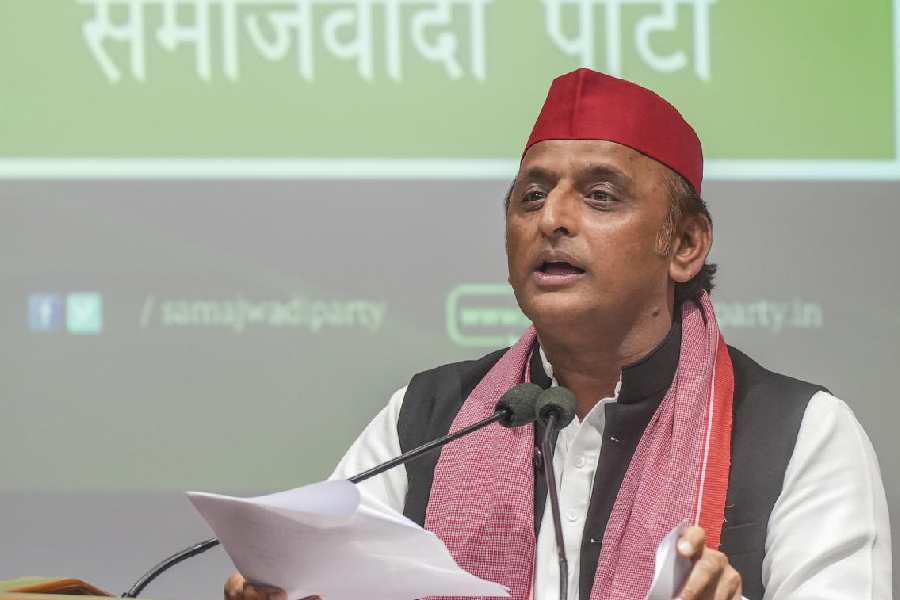When Sarveshwari Devi gave birth to a boy while standing in queue before a bank’s gates, waiting her turn to withdraw cash following the demonetisation announced by Prime Minister Narendra Modi eight years ago, she named him Khajanchi, or Treasurer.
On Saturday, a day after the eighth anniversary of the note withdrawal that stalled India’s economy and ravaged the lives of the poor, Samajwadi Party president Akhilesh Yadav, Khajanchi by his side, reminded the country of the “mischief” perpetrated by the Modi government.
“The boy was born at the gates of a bank when the central government played mischief and forced the entire country to queue up to change their currency notes,” Akhilesh said at a news conference.
“Whatever the government said at the time proved a lie. If investigated properly, the demonetisation will prove to be the biggest scam in the history of the world.”
Although Khajanchi Nath was born on December 2, 2016, near their village Sardarpurva in Kanpur Rural district — more than three weeks after the November 8 demonetisation — Akhilesh on Saturday marked a symbolic “birthday” for the boy.
The Modi government had demonetised ₹1,000 and ₹500 notes saying the move would check the circulation of black money, a claim it failed to prove. While the government said the country should henceforth have currency in smaller denominations, it printed new ₹2,000 and ₹500 notes within weeks. The ₹2,000 notes were withdrawn last year.
“The government didn’t look towards Khajanchi ever, and so Samajwadi Party leaders have taken the responsibility for his education and other needs,” Akhilesh said.
Akhilesh, who was Uttar Pradesh chief minister when Khajanchi was born, had given ₹2 lakh in cash to the boy’s parents along with a house. Since then, his party has celebrated the boy’s birthday every year on a small scale.
The Samajwadi chief also targeted the saffron-clad BJP chief minister, Yogi Adityanath.
“He (Adityanath) has withdrawn real (criminal) cases against himself while booking many people in false cases. The way he speaks sows doubts in our mind whether he is really a saint,” he said.
“A saint’s attribute is that he speaks little but he (Adityanath) speaks so much and in such a bad tone that he sounds like the opposite of a saint.”
After taking over as chief minister in 2017, Adityanath got a case of communal violence against him withdrawn.
Akhilesh also alleged that Adityanath, who is the mahant of the Gorakhnath temple, had “created a split among the sadhus of the country with some ulterior motive”.
Members of the All India Akhara Parishad fought with each other in Allahabad two days ago after being allotted land that was below their expectations in the Sangam area, where the Kumbh Mela will take place in January-February next year.
Addressing a by-election campaign in the Khair Assembly constituency in Aligarh on Saturday, Adityanath said: “The Samajwadi Party belongs to wrong-doers. Never
support them.”
Like Khajanchi, Uttar Pradesh is home also to four-year-old Lockdown, whose parents named him thus because he was born during the nationwide Covid-induced lockdown in 2020.
His family, residents of Khukhund village in Deoria district, had at the time said they had chosen the name because “it’s a new word for us”.
“Our Lockdown will always remind us of the highhandedness of the police during the lockdown, when the black marketeering of food was at its peak,” the boy’s mother, Neerja Devi, had said.
She had cited the plight of the migrant labourers from Uttar Pradesh and Bihar, many of whom “died on the roads” while walking to their homes hundreds of kilometres away.











